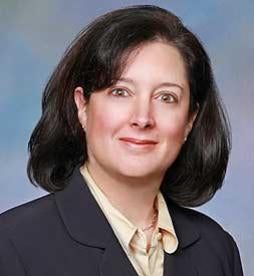A new District of Columbia law has expanded the protections afforded to workers by the D.C. Accrued Sick and Safe Leave Act of 2008.
The Earned Sick and Safe Leave Amendment Act of 2013 (“Act” or “amendments”), effective February 22, 2014, modifies the existing law in a number of significant ways. New eligibility criteria allow employees to accrue and use sick/safe leave earlier in their tenure. The law also extends protections to tipped restaurant staff, allows aggrieved employees to bring a private lawsuit within three years of the claimed violation, and significantly enhances anti-retaliation provisions. Although a March 6 effective date was projected as recently as February 21, the final effective date of the Act has been set at Saturday, February 22, 2014. Despite an apparent “applicability” date for the amendments in 2015 or later, employers nonetheless should begin accruing sick/safe leave for covered employees, permitting them to use accrued leave, and keeping appropriate records, as explained below.
Existing Law
The D.C. Accrued Sick and Safe Leave Act of 2008 (SSLA) applies to employers of any size with any employees in D.C. Employers must provide three, five, or seven days of paid sick/safe leave per year to eligible employees who work in the District, depending on the number of employees working for the company. Three paid sick/safe leave days are required annually for companies with 1-24 employees; five days for those with 25-99 employees; and seven days for those with 100 or more employees. Under regulations published by the D.C. Department of Employment Services (DOES), which administers the law, only employees working in D.C. are counted for these purposes. An employee is deemed by the regulations to work in D.C. when:
(1) he or she spends more than 50 percent of his or her working time in D.C., or
(2) his or her employment is based in D.C., he or she regularly spends a substantial amount of his or her work time in D.C., AND he or she does not spend more than 50 percent of his or her work time working in any particular state.
However, as explained below, the definition of “employee” has been changed by the 2014 amendments; this regulatory definition may be expected to change, as well.
The reasons for which paid leave can be used have not changed. They include:
1. The employee’s own physical or mental illness, injury, or medical condition;
2. The employee’s need to obtain professional medical diagnosis or care or preventive medical care (i.e., doctor’s appointments);
3. The employee’s need to care for a family member for reasons covered by Nos. 1 and 2 above; or
4. An absence because the employee or family member is a victim of stalking, domestic violence, or sexual abuse (as explained in more detail in the law).
Changes to Eligibility and Coverage
Under previous law, a covered “employee” was one who had been employed for at least one year by the same employer and worked at least 1,000 hours during the preceding 12 months. Under the new SSLA amendments, however, “employee” is defined simply as “an individual employed by an employer.” As a result, employees no longer need to work for one year and work 1,000 hours during the preceding year in order to accrue and use sick/safe leave. Instead, the law provides that employees are entitled to accrue leave starting on their date of hire, and they can use that leave after 90 days of employment.
As under the prior law, part-time employees are entitled to accrue and use leave. This is a challenging compliance issue for many employers, who do not typically provide paid leave to part-timers. In addition, more part-time employees will be covered under the amendments because the 1,000-hour minimum no longer applies. Because leave accrues based on each hour worked by an employee, all part-timers are eligible for sick/safe leave, but since they work fewer than 40 hours per week, they will accrue paid leave at a slower rate.
Coverage for Tipped Employees and Temps
Restaurant wait staff and bartenders who receive tips, commissions, or other gratuities and receive a base wage that is below the D.C. minimum wage previously were excluded from the law. Now these employees are entitled to accrue up to five days of paid leave each year, regardless of the size of the employer. This leave must be paid at the D.C. minimum wage rate, which currently is $8.25 an hour, not their lower, tipped-employee base rate. Several commenters at the committee hearing on the bill in November 2013 expressed concern that these workers could earn more if they stay home than if they come to work during slow periods, but these comments appear not to have been addressed in the final law.
Temporary employees (those engaged through a staffing agency) are now expressly covered by the law, and if a temp is later hired directly by the secondary employer, he or she retains his or her SSLA rights and leave balances accrued while in temporary employee status. Employees who transfer to a different division, entity, or location inside of D.C., or transfer outside of the District and then back to the District, but remain employed by the same employer, are entitled to have their SSLA leave balances retained or reinstated, as are employees who leave the employer and are rehired within one year. In addition, there is a new exception for employees in the building and construction industries who are subject to collective bargaining agreements.
Strong Anti-Retaliation Provisions
The amendments greatly strengthen the anti-retaliation provisions present in the 2008 Act. If an employer takes an adverse action against an employee within 90 days after the employee has engaged in certain protected activity (that is, filing a lawsuit under the Act, filing an administrative complaint, raising a complaint internally about the employer’s SSLA compliance, informing any person of his or her rights under the Act, and similar activities), a rebuttable presumption arises that the adverse action was retaliatory. Some commenters have stated that the mere use of a sick/safe leave day raises this presumption, but that interpretation does not appear supported by the language of the law.
Elimination of Annual Cap
The previous law provided that: (1) SSLA leave carries over annually; (2) an employee cannot use in one year more than the maximum annual hours accrued; and (3) unused paid leave is not reimbursed upon the termination of employment. These provisions have been omitted in the amendments. This change is significant — now that the annual cap on use of sick/safe leave has been omitted, employees may accrue large sick/safe leave balances that can be used in a single year. Employers who have retained their “use or lose” leave policies in D.C., reasoning that due to the annual cap on use of sick/safe leave, most employees would never use large SSLA balances, now cannot apply those policies to sick/safe leave. Moreover, even though the law is now silent on carryover, courts and the DOES may still conclude that sick/safe leave cannot be subject to “use or lose” policies because there is nothing in the law expressly permitting “use or lose.” Nothing in the amendments, however, requires payout of accrued unused leave upon termination of employment, even after the omission of these provisions from the law.
Recordkeeping
The new law requires that all employers retain records documenting hours worked by employees and paid leave taken by employees for a period of three years. Previously, this requirement was contained in the DOES regulations. If an issue arises regarding an employee’s entitlement to paid leave, the law creates a rebuttable presumption that the employer has violated the Act if the employer has not kept adequate records.
When Does the Law Apply?
Although the law’s effective date is February 22, a provision in the amendments has led to some confusion among commentators. That language states that the amendments do not “apply” until the new law is included in an approved budget and financial plan, which is not expected to occur before 2015. This provision apparently derives from a memorandum sent by District of Columbia’s Chief Financial Officer Natwar M. Gandhi to Council Chair Phil Mendelson dated November 25, 2013. In that memo, Gandhi informed Mendelson that there were insufficient funds in the Fiscal Year 2014 through 2017 budget and financial plan for the DOES to “implement” the new law.
However, the amendments create a new private right of action with a three-year statute of limitations. Even though the Act may not be “implemented” by the DOES immediately, the law permits an affected employee to enforce his or her rights through a private lawsuit.
Accordingly, employers should take the following steps to comply with the new law:
-
Begin accruing sick/safe leave for all employees as of February 22, 2014;
-
Permit the use of accrued paid leave by employees on February 22, 2014, or when they reach their 90th day of employment, whichever is later;
-
Employers that rely on existing PTO (paid time off), vacation, or sick leave policies to satisfy the SSLA should examine those policies in light of these amendments, to ensure that they still comply;
-
Ensure that employee handbooks, forms, and policies specifically implementing the SSLA also comply with the new provisions;
-
Follow the recordkeeping requirements of the new law; and
-
Train human resources personnel, managers, and leave administrators to understand and accurately implement the new law.




 i
i

